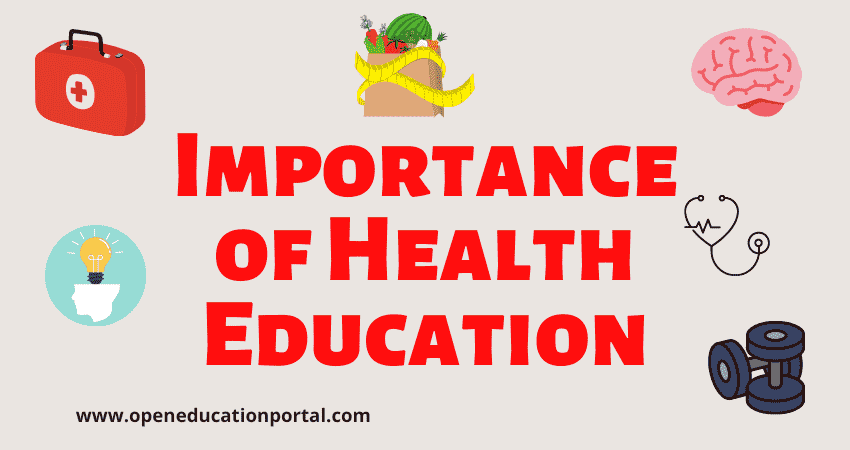The reason why health education is important in schools is because students face numerous life transitions that can affect their health. Students’ bodies go through puberty, move from one school to another, and face many changes in their lives. These events, including the introduction of new food items and changing their environment, all affect the way they feel. Students need information about nutrition and hygiene to maintain a healthy lifestyle. Fortunately, schools are offering these programs at an increasing rate.
Impact of health education on health outcomes
In addition to providing information on physical health and disease prevention, school-based health education also focuses on mental health and social and emotional well-being. It helps students develop healthy attitudes and practice habits and promotes school achievement. National Health Education Standards have been developed by the American Cancer Society, the American School Health Association, and the Society of State Directors of Physical Education and Recreation. These standards serve as a guide for curriculum development and assessment. Evaluations have shown that health education improves academic achievement and student health.
The impact of health education on school-based outcomes is widely acknowledged in the literature. The term “the gradient” refers to the fact that health outcomes differ significantly based on education. Education-health research has documented large variations in mortality rates. Health outcomes can be measured objectively, with lower education levels reporting more chronic conditions, greater functional limitations, and higher rates of disability. Consequently, the effects of health education on school-based health outcomes are clearly linked to education.
Importance of health literacy principles
One of the challenges in implementing standards for health education in schools is the fact that different communities have varying levels of health literacy. To improve health literacy, it is important to document the link between individuals’ actions and their level of health literacy. In general, individuals assume that they are making informed decisions about their health and behavior, but in many cases, socio-ecological factors are the most influential factors. For example, an overweight individual may not know how to read food labels, or he may not live in a safe community.
Many people define health literacy as the ability to understand, analyze, and apply information to make informed decisions about their own health. It is a multidimensional skill set that combines general literacy, numeracy, and special skills in health. Those with good health literacy know when to seek out information through printed or oral forms, and they can evaluate the validity and relevance of the information they gather. This skill set is crucial for the development of healthy consumers and for the improvement of public health.
Importance of family and community involvement
The quality of academic programs and student learning can be enhanced by engaging parents and communities in school health programs. According to recent national surveys, students and families have high expectations for their future, with 98 percent planning to graduate from high school and 82 percent pursuing some postsecondary education. However, only 70 percent of eighth graders intend to enroll in college, so it is important to engage parents and communities to support high school completion and college-initiated studies.
The results showed that involving parents and communities in school health education is associated with more effective implementation of policies to promote healthy eating. After adjusting for a variety of factors, the results showed that schools with family and community involvement had a higher mean score on the healthy eating strategies scale than schools without such involvement. School health education programs that included parent and community involvement did not have any association with the prohibition of marketing and distribution of fast foods within school venues.
Importance of hygiene education
Educating children about good hygiene habits is essential for the wellbeing of children and staff at educational institutions. Schoolchildren’s close contact with others, whether indoors or outdoors, can easily spread germs. A school’s hygiene standards must be maintained to prevent infection, but this can be a challenge, especially during peak times. Proper hygiene education in schools can provide parents with peace of mind. In addition to health benefits, good hygiene practices also prevent the spread of illnesses.
A recent study found that school children didn’t wash their hands often enough after using the toilet. This reflected a lack of hygiene facilities. The physical environment of schools also played a role in the poor hygiene practices of students. In addition, students were not taught proper hand hygiene habits, which may compromise their academic performance. This is why it’s important to implement hygiene education in schools, even at the primary level.

